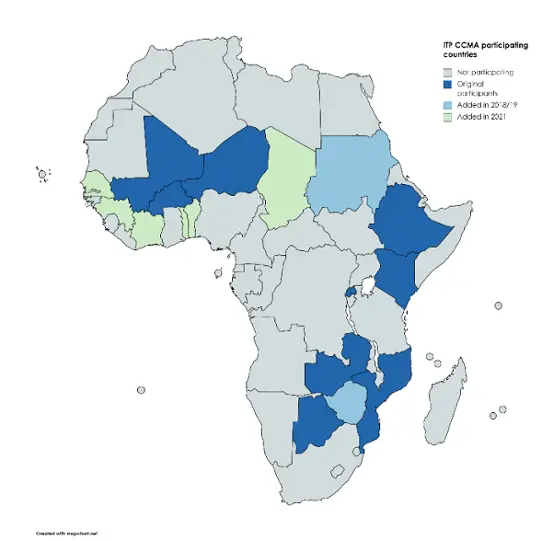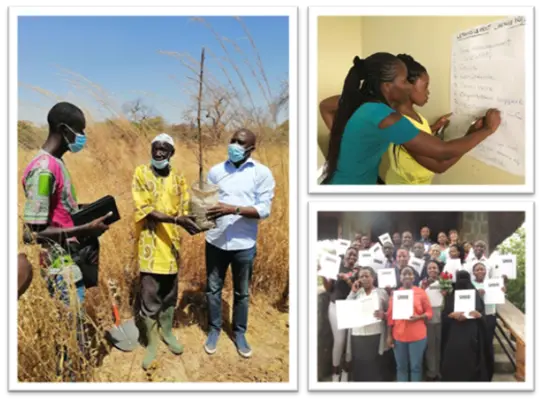International Training Programme - Climate Mitigation and Adaptation
The advanced training programme on Climate Change (ITP 309) was implemented from 2015-2022. A total of almost 400 professionals from 17 African countries participated in the programme, which aimed to strengthen organisational capacity to minimize the effects of climate change.
Planning for an uncertain future in terms of climate is difficult and can lead to costly and inefficient investments, loss of lives, biodiversity and land, which will hamper development and potentially lead to increased poverty. Using the best available scientific climate data and projections in the planning and decision-making processes, can improve the effectiveness and efficiency of development projects.
The overall goal of ITP 309 Climate Change Mitigation and Adaptation (CCMA) programme was to contribute to strengthening institutional capacity to handle climate change related issues in support of sustainable development and poverty reduction in the targeted countries, i.e. Climate change resilient societies and environments for the benefit of present and future generations in Africa.

17 Participating countries.
The programme initially included 9 countries: (Ethiopia, Kenya, Rwanda, Botswana, Mozambique, Zambia, Burkina Faso, Mali and Niger), These countries were chosen based on where climate adaptation and mitigation feature clearly in their national development plans and/or in Sida’s country strategies . The geographic focus was later extended to also include Zimbabwe (2018) and Sudan (2019) as well as six countries in West Africa (2021) which are users of the FANFAR system for Operational flood forecasting and alerts in West Africa, a program also implemented by SMHI. At the end of the programme the number of partner countries had thus increased to 17.
Through the 10-12 month training programme, delivered in both English and French, participants learned how to access the latest climate change data, e.g. through CORDEX, research and projections, how climate change affects society, including democracy and human rights, how to apply for climate funding and they were able to get inspired by state of the art climate solutions and techniques, before designing and implementing their own climate mitigation and adaptation projects. These projects are called change projects as they are intended to catalyse changes for better climate change practices, policies and strategies in the participating organisations. The participants were also able to share experiences and information between the different countries and even more importantly between sectors, which generated a better understanding of national needs.

ITP participants in action.
The Programme has helped countries in Africa to address various targets under the Sustainable Development Goals and the Paris Agreement on Climate and many of the alumni have gone on to represent their countries at UNFCCC CoP meetings. 28 change project short case studies in English and French are available
What happens next?
There is still a demand for more climate change data, projections and knowledge how to use it in societal planning in many developing countries. SMHI and Sida are therefor planning a follow-up climate programme called Capacity Development in Climate-Resilient Planning and Development for Africa (CPD4Africa), planned to start in 2024.
Countries: 17 African countries, see map
Duration: 2015-2022
Partners: Government departments, Academia, NGOs and private sector
Finance by: Swedish Agency for Development Cooperation (Sida)
Budget ($): USD 9 000

